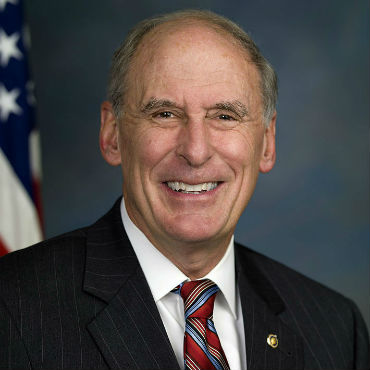Is Coats too nice to lead ODNI?
As both a "resource and a liability," cyberspace will be a priority, Dan Coats tells the Senate Select Committee on Intelligence during his confirmation hearing for Director of National Intelligence.

Former Sen. Dan Coats (R-Ind.) made his case to take over the Office of the Director of National Intelligence in the Trump administration.
In what was as much a homecoming as a confirmation hearing, members of the Senate Select Committee on Intelligence pressed former Sen. Dan Coats on his ability to advocate for the intelligence community.
Although little time at the hearing was spent on direct threats to the U.S. and how the intelligence community should address those issues, Coats repeatedly stated that cyber is moving to the top of the list -- past Russia, Iran and ISIS -- as the greatest threat to the U.S. and the one deserving the most attention.
"Cyberspace is both a resource and a liability; an increasingly connected world creates tremendous opportunities but also many vulnerabilities," Coats said in his opening remarks.
Ranking member Sen. Mark Warner (D-Va.) called on Coats to provide any and all intelligence to the committee to assist in its investigation of Russia's campaign to influence the 2016 presidential election.
"Russia has a long history of propaganda and trying to influence various nations' cultures and elections," Coats said. "But they seem to have stepped up their game, and they're using cyber and they're using sophisticated methods that they didn't have before, and so I think it's a very key issue that we understand fully what has happened," said Coats, who added that he had just received his security clearance and has yet to review classified intelligence reports on Russia's activities.
Senators took little issue with Coats' personal views, politics or qualifications, but rather expressed more concern about the Trump administration's early comments and actions regarding the intelligence community.
A number of senators stated they were concerned by President Donald Trump's executive order that removed the director of national intelligence from the National Security Council's principals committee.
Coats stated that the president and administration officials had reassured him that the intent of the executive order was not to remove the DNI from the principals committee.
"I have been reassured time and time and time again from the president to his advisors that I'm welcome and needed and expected to be a part of the principals committee," Coats said, though he conceded that the language of the executive order had not yet been modified.
Several senators said they were concerned that Coats was essentially too nice for the job and might not be tough enough to stand up to political pressures, the Trump administration and the heads of the various intelligence agencies.
"You're one of the most likeable, affable, easy going people I've ever met," Sen. Angus King (D-Maine) said. "I'm not sure likeability and affability are the qualities I want in this position. I want somebody who's crusty and mean and tough, because you're riding herd on 17 agencies that will always want to be going in different directions, and you're going to be reporting to a president who may or may not want to hear what you have to say."
Coats pledged that he would stand up as needed and repeatedly stated he would resist political pressures or policy debates and simply provide accurate intelligence to decision makers.
Sen. Ron Wyden (D-Ore.) pressed Coats to deliver to Congress the number of innocent Americans who have been "swept up" by communications-gathering activities carried out under section 702 of the Foreign Intelligence Surveillance Act, which is up for renewal this year.
Coats said he would work to find out why it has been so difficult to determine that number and provide it to Congress, but until he had more information about the obstacles, he said he could not promise to provide the numbers.
Senators also pressed Coats on his commitment to review the Office of the Director of National Intelligence and lead any needed reforms to the 12-year old agency. Coats said one of his major goals is to carry out a review of the ODNI.
"I believe every government agency must constantly review its operations, and I'll be taking a look at not only the Office of the DNI, but the entire IC, and at how we can do things most efficiently and effectively," Coats said.
NEXT STORY: Why FEMA needs a new administrator, now





